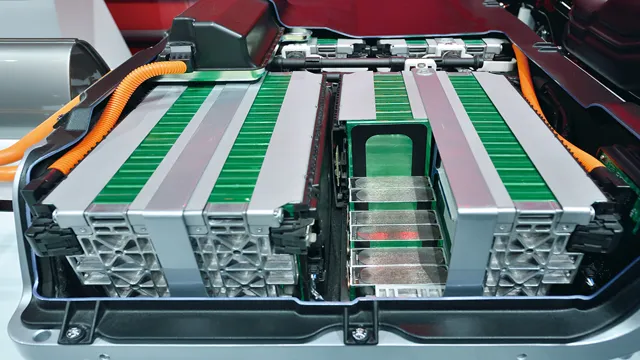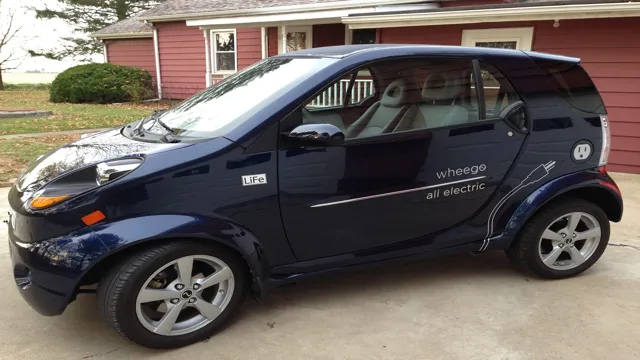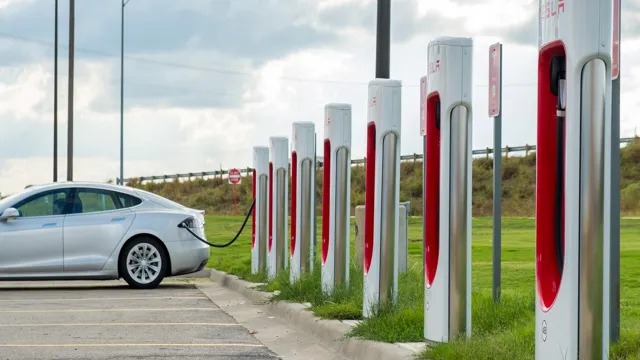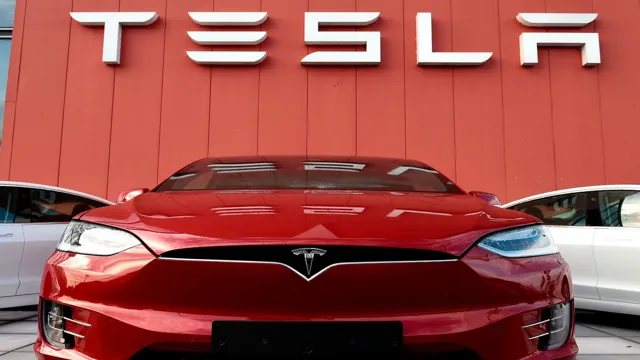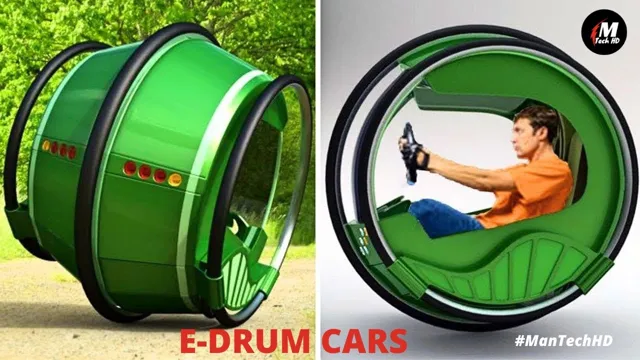Revolutionizing the Road: The Best Electric Car Battery Technology of the Year!
As the world shifts towards sustainable transportation, electric vehicles have emerged as a promising alternative to traditional gasoline-powered cars. However, this new technology carries unique challenges that need to be addressed for the widespread adoption of electric vehicles. One critical aspect is the car battery – the heart of an electric vehicle’s powertrain.
The battery’s capacity, performance, and durability will determine the range, charging speed, and lifespan of an electric car. With that said, what is the best car battery technology for electric vehicles? Let’s explore this question so that you can make an informed decision when it comes to purchasing an electric car.
Lithium-Ion Batteries
Lithium-ion batteries are currently the best car battery technology for electric vehicles. Unlike traditional lead-acid batteries, which can be heavy and inefficient, lithium-ion batteries are much lighter and more energy-dense. This means that they can store more energy in a smaller package, which is essential for electric vehicles that need to balance range and weight.
Lithium-ion batteries are also excellent for their durability and longevity, with many models capable of lasting for hundreds of thousands of miles without needing to be replaced. Furthermore, they are also relatively easy to maintain, with no need for regular top-ups or maintenance like traditional batteries. Overall, lithium-ion batteries are the best option for eco-conscious drivers who want an efficient, long-lasting, and low-maintenance power source for their electric vehicle, making them an ideal choice for the future of green transportation.
Long-lasting charge
One of the biggest advantages of lithium-ion batteries is their long-lasting charge. These batteries have the ability to hold their charge for a longer period of time, making them an ideal choice for people who need a reliable source of power on the go. Unlike traditional batteries that lose their charge over time, lithium-ion batteries retain their charge even after several cycles of use.
This is because they use a combination of chemicals that are more stable and less prone to degradation than traditional battery materials. As a result, lithium-ion batteries provide a consistent and reliable source of energy for a wide range of applications, including smartphones, laptops, power tools, and electric vehicles. So, if you’re looking for a battery that will keep your devices running for longer periods of time, lithium-ion batteries are definitely worth considering.
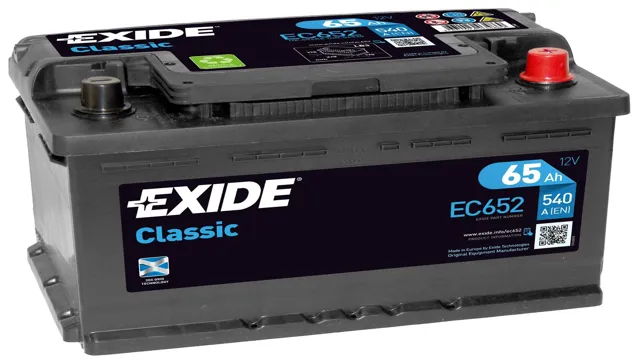
Increases range per charge
Lithium-Ion batteries have revolutionized the way we use energy in our modern world. They are more efficient than traditional batteries, and the best part is they increase range per charge. Perhaps you might wonder how a small battery could hold so much energy that it would allow your car to run for so long.
The secret lies in the chemistry of the battery. The lithium-ion battery consists of two electrodes; one is positively charged and the other negatively charged and a separator in between to keep them apart. When you charge the battery, lithium ions flow from the cathode to the anode, and when you use the battery, the current flows in the opposite direction.
As for range per charge, Lithium-ion batteries have a high energy density, meaning they pack a lot of energy into a small space. With each improvement in technology, this density only increases. Therefore, Lithium-ion batteries are a smart investment for anyone who wants efficient, long-lasting energy.
Quick charging capability
When it comes to rechargeable batteries, Lithium-Ion batteries are taking the lead in the market. One of the significant benefits that Lithium-Ion batteries offer over other types of rechargeable batteries is their quick charging capability. This means that users can charge their Lithium-Ion batteries in a shorter time, which enhances the usability of their devices.
Furthermore, due to their high energy density, Lithium-Ion batteries have become the preferred choice for portable devices like laptops, smartphones, and cameras. This is because Lithium-Ion batteries can store more energy in smaller, lightweight batteries. Moreover, Lithium-Ion batteries have a lower self-discharge rate, which means that they can hold their charge better, making them ideal for products that are not used frequently.
In sum, the quick charging capability of Lithium-Ion batteries makes them the go-to choice for powering portable devices and equipment that require fast charging times.
Solid-State Batteries
The electric car market is quickly expanding, and with it comes the need for more efficient and reliable car batteries. While traditional lithium-ion batteries have been the norm for many years, solid-state batteries have been gaining popularity as the best car battery technology for electric vehicles. Solid-state batteries use a solid material instead of a liquid electrolyte, which makes them safer and more durable.
They also have the potential to store more energy and charge faster than traditional lithium-ion batteries. With their higher energy density, solid-state batteries could lead to greater driving ranges for electric cars, making them more practical for long-distance travel. While still relatively new technology, many car manufacturers are investing in the development of solid-state batteries, and it’s likely we will see more electric cars equipped with this technology in the near future.
Increased safety
Solid-state batteries are emerging as the future of batteries, with their superior properties offering increased safety, energy efficiency, and performance. Unlike traditional lithium-ion batteries that use a liquid electrolyte, solid-state batteries use a solid electrolyte that can withstand high temperatures and pressures. This makes them more stable, less prone to leakage, and less likely to catch fire or explode, making them safer in everyday use.
Additionally, solid-state batteries have a longer lifespan, can charge faster, and have a higher energy density, allowing for longer run times for devices. With the automotive industry investing heavily in solid-state batteries, we could soon see electric vehicles that can travel hundreds of miles on a single charge and recharge in minutes. The future of batteries looks bright with solid-state batteries leading the charge!
Faster charging times
Solid-state batteries have become a promising solution to the issue of faster charging times for electric vehicles. These batteries utilize solid electrolytes instead of the liquid or gel electrolytes found in current lithium-ion batteries, which allows for faster charging times and improved energy density. By using a solid-state battery, EVs can charge in as little as 15 minutes while significantly reducing the risk of explosion and improving battery lifespan.
With these benefits, it’s no wonder that many electric vehicle manufacturers are investing in the research and development of solid-state batteries to improve the speed and efficiency of the EV charging process. As the demand for environmentally friendly transportation grows, it’s exciting to see how solid-state batteries are helping to pave the way for a cleaner and more efficient future.
Higher energy density
Solid-state batteries have the potential to revolutionize the battery industry with their many benefits. One of the most significant advantages of solid-state batteries is their higher energy density. This means that they can store more energy in the same amount of space than traditional batteries.
In other words, solid-state batteries offer more power in a smaller package. This increased energy density is made possible by the use of solid-state electrolytes instead of liquid electrolytes, which are found in most standard batteries. Solid-state electrolytes are safer and less likely to leak or catch fire, which makes them an excellent choice for high-performance applications.
With their higher energy density, solid-state batteries can power electric cars and other heavy-duty applications, making them an essential technology in the quest for sustainable energy.
Flow Batteries
When discussing the best car battery technology for electric vehicles, flow batteries come to mind. These batteries operate by storing energy in a liquid electrolyte, which flows through a membrane to create electricity. Compared to traditional lithium-ion batteries, flow batteries have fewer limitations in terms of size, and they can be scaled up or down easily depending on the application.
Additionally, flow batteries have a longer lifespan and are more environmentally sustainable as they can be easily recycled or reused. While flow batteries are not yet as widely produced for commercial use as other battery types, they offer promising potential for the future of sustainable energy. Therefore, flow batteries have become a topic of great interest for the electrification of automobiles and are seen as a promising alternative to traditional batteries.
Flexible storage options
Flow batteries are a type of flexible storage option that are gaining popularity because of their longer lifespan, low maintenance cost, and scalability. Unlike conventional batteries that use solid electrodes that wear out over time, flow batteries use liquid electrolytes that can be recharged and reused for a longer period. This makes them an ideal option for long-duration energy storage applications like backup power, load shifting, and renewable integration.
Flow batteries come in different sizes and chemistries like vanadium, zinc bromine, and iron-chromium, among others, depending on the energy capacity and application requirements. They are also safer than conventional batteries because of their non-flammable and non-explosive nature. With flow batteries, the energy stored can be discharged for longer periods of time without compromising the efficiency or performance.
This makes them a reliable and low-cost option for businesses and homeowners looking for flexible and sustainable storage options.
Long lifespan
When it comes to long lifespan, flow batteries are the perfect fit. A flow battery is an energy storage device that uses two chemical components dissolved in liquids that are pumped through the system. The chemical reactions that occur create electrical energy that can be used immediately or stored for later use.
One of the biggest advantages of flow batteries over traditional batteries is that they have a very long lifespan. The reason for this is that the chemical components of flow batteries are not used up or consumed during the charge and discharge cycles. Instead, they are simply circulated through the system.
This means that flow batteries can last for decades without needing to be replaced, making them a great choice for long-term energy storage applications. Additionally, flow batteries are very safe and environmentally friendly, making them a sustainable option for energy storage. If you’re looking for an energy storage solution with a long lifespan, flow batteries are definitely worth considering.
Conclusion: Choose the Best Battery for Your Electric Car
In conclusion, the race for the best car battery technology has been a long and exhausting one. However, with the advent of electric cars, we have finally reached a tipping point and the winner is clear: the lithium-ion battery. With its unparalleled energy density and durability, it has become the backbone of the electric car industry.
After all, who wants a car that’s constantly in need of a recharge? So next time you hit the road, remember that your vehicle’s heart and soul is the lithium-ion battery. Don’t let its plain appearance fool you – it’s the engine that’s powering the future of transportation!”
FAQs
What is the best type of battery technology for electric cars?
Lithium-ion batteries are currently considered the best technology for electric car batteries due to their high energy density, longer lifespan, and faster charging capabilities.
Can I replace a traditional car battery with an electric car battery?
No, traditional car batteries and electric car batteries serve different purposes and cannot be interchanged. Electric car batteries are larger, heavier, and designed to provide power for longer periods.
How long do electric car batteries last?
The lifespan of an electric car battery depends on several factors, including the type of battery technology, usage patterns, and maintenance. On average, a battery can last between 8-10 years or up to 200,000 miles before needing to be replaced.
Are there any advancements being made in electric car battery technology?
Yes, advancements in electric car battery technology are continuously being made to improve energy storage, reduce costs, and increase efficiency. Some new developments include solid-state batteries, silicon anode technology, and battery swapping stations.
